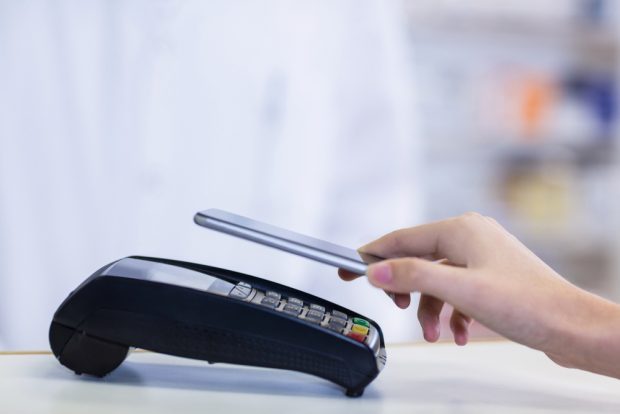 Though plastic may die soon, it definitely isn't dead yet. (Source: Shutterstock)
Though plastic may die soon, it definitely isn't dead yet. (Source: Shutterstock)
Mobile wallets are on track to become more popular than cash by 2025, and the influx of data from those mobile wallets will be so valuable that fees for digital payments could drop to zero, according to new Deutsche Bank research.
The bank's survey of 3,600 customers across the United States, U.K., China, Germany, France and Italy found that Americans currently make just 13% of their weekly in-store purchases with a digital wallet on their smartphones or smartwatches. Over the next six months, however, 33% of Americans planned to use those smartphone digital wallets more and 23% planned to use smartwatch digital wallets more, according to the data. Only about one in 10 U.S. respondents (11%) said they planned to use cash more in the next six months.
Recommended For You
Those shifts will help mobile wallets become the second most-preferred method of payment after cards, as well as the most preferred method among millennials by 2025, according to the study.
"When people discuss the future of payments they tend to predict the end of cash. Our view is different. Not only do we think cash will be around for a long time, we see the transition to digital payments as having the potential to do no less than rebalance global economic power," Deutsche Bank noted.
"While cash will stay, the coming decade will see digital payments grow at light speed," it added. "That will lead to the death of the plastic card. Over the next five years, we expect mobile payments to comprise two-fifths of in-store purchases in the U.S., quadruple the current level."
Plastic Still Preferred
Though plastic may die soon, it definitely isn't dead yet. According to the data, 53% of U.S. consumers today preferred using plastic cards; only 13% preferred digital wallets. Cash was still a favorite with 33% of respondents. Only 2% preferred checks.
What's more, Deutsche Bank reported that half of weekly in-store purchases in the United States were with debit or credit cards, and 35% were with cash. Only 13% of U.S. purchases were via smartphone or smartwatch digital wallets. Just 2% of Americans' weekly in-store purchases were with checks.
Mobile wallets are wooing many consumers, however. Although convenience was the most common reason that U.S. respondents preferred digital wallets, about a quarter cited having fewer things to carry (25%), not having to take out a wallet (28%) or not having to carry cash (28%) as big reasons. About a quarter cited the free cost of digital wallets (26%), the extra security (26%), budget-management ease (23%) and a reduction in the chances of being mugged (21%). About a quarter (23%) also preferred digital wallets because they offered discounts, rewards and prizes.
The expected rise in mobile-payments adoption could increase the volume of payments data available and in turn reduce the cost of payments, Deutsche Bank noted.
"As the data gleaned from payments becomes increasingly valuable, payment fees will approach zero," it said.
Contactless Conversion
The spread of contactless cards may be helping many consumers dip a toe in the digital payments pool. Contactless cards became widely available in the U.S. later than in other advanced countries, but 16% of Americans are paying for purchases with contactless cards and usage is growing, according to Deutsche Bank.
"A fifth of Americans received their first contactless card in the last 12 months, and another fifth will get one soon," it noted.
Despite the changes, many American consumers are sticking to certain habits.
"It is puzzling to see that only 13% of Americans use digital wallets on a weekly basis and nearly three-fifths have started within the last year," Deutsche Bank noted. "The U.S. offers a stunning illustration of how physical payments — cash and plastic cards — are ingrained in the culture. On average, Americans hold a record number of plastic cards and an average of $47 in cash per person. Americans say they favor cash and cards because they are faster and convenient, and because most digital wallets offer no rewards and no cash back. So, even though the U.S. is arguably the world's leading payments innovator, card innovations are just starting to take off."
© 2025 ALM Global, LLC, All Rights Reserved. Request academic re-use from www.copyright.com. All other uses, submit a request to [email protected]. For more information visit Asset & Logo Licensing.







